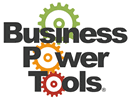Make Your Tradeshow Booth Decisions
Back to PR Tutorial Index
Renting booth space to exhibit at a trade show can be very expensive, and if you don’t already own a booth, the costs to rent, purchase or build one also need to be factored in. Before you make your final decision on which shows to attend, you also need to decide whether or not you want or need to exhibit at the show. You have several options:
Attend the show but don’t exhibit: If you don’t have a booth and can’t afford or choose not to rent or buy one right now, that’s OK – this section includes strategies to get exposure at a show with or without a booth. Use a show-provided tabletop: At some shows, particularly smaller ones, exhibitors can pay a fee and be provided with a simple tabletop draped with fabric and several folding chairs.
Rent a booth: You can rent a booth to use for a specific show. If you don’t plan on attending shows very frequently, this may be the best option for you. You’ll probably want to create posters and/or banners to “customize” the booth and draw attention.
Share a booth: You may be able to share a booth with another company, such as a distributor or vendor of your products. Depending on your arrangements with the other company, sharing a booth may enable you to get exhibitor benefits for a more cost-effective price than renting your own space.
Purchase a refurbished booth: Some booth vendors may have refurbished booths available for sale. If you plan to attend several shows, it may be more cost-effective to purchase a booth than to rent a booth each time another show comes up. As with a rented booth, you’ll want to “customize” the booth with artwork like posters and/or banners.
Purchase a new ‘stock’ booth: If you want to own your own booth but can’t afford the time and expense to design and build a custom one, you may want to purchase a “stock” booth in a standard design, then add promotional materials of your own to customize it.
Design and build a custom booth: If you have special needs or wish to make a big impression at a show, you may choose to design your own custom booth and have it built to your specifications. This can be very expensive and will require a longer lead time, so research the costs thoroughly and plan ahead.
There are as many booth designs as there are companies to rent, sell and build them. Costs can range from several hundred dollars for a tabletop design with an erector-set like support system, to hundreds of thousands of dollars for a 100 x 100 foot booth with two levels, thick carpeting and laser-like displays. The best one for you should be based on your budget (how much money can you afford?), the expectations in your industry (does everyone have a tabletop display, or are you expected to have a glitzy, multimedia showcase?) and your competition (does your booth look as good as those from your competitors?).
To effectively conduct business with the media, be sure your booth has an area in which you can conduct interviews. If you sell products, you may also need a demonstration area. The “ideal” booth would have an enclosed conference room to provide a quiet, private place to conduct meetings. Unfortunately, this is more extravagant than most companies can afford. At a minimum, you’ll want to have the following:
• a poster or banner emblazoned with your company name (if this is not already a permanent part of your booth);
• an interview/demonstration area, preferably with a table and chairs for at least two people (you and the reporter) and more, if possible;
• a table and/or wall space to display literature;
• storage units (cabinets, boxes) to hold press kits, sample products and other materials; and
• a telephone so reporters can reach you at the show, and so you can reach your office for answers to questions or to place orders for review products to be sent out immediately (you can rent cellular phones at most shows and get a temporary number assigned).
Some shows permit food and beverages on the show floor; if so, you may also want an ice chest to store refreshments. To find out about this, and for a wealth of other information on exhibiting at a show, ask the show’s sales office for their guidebook. This resource is provided free to exhibitors, and will normally include maps of the show floor(s), layouts and dimensions of the various booth spaces, services available for a fee (such as having a telephone line installed for your booth), planning checklists for your booth space, and other helpful information.
